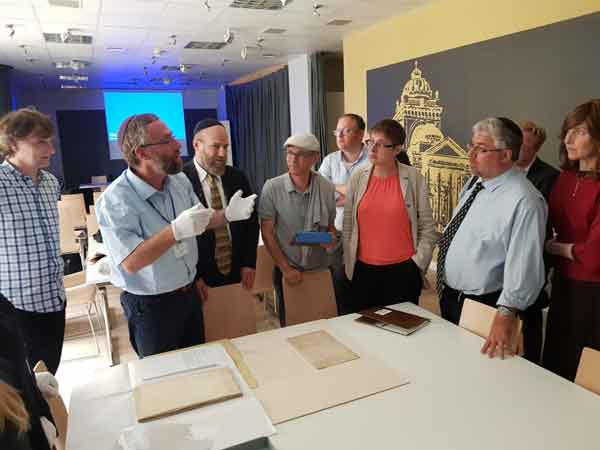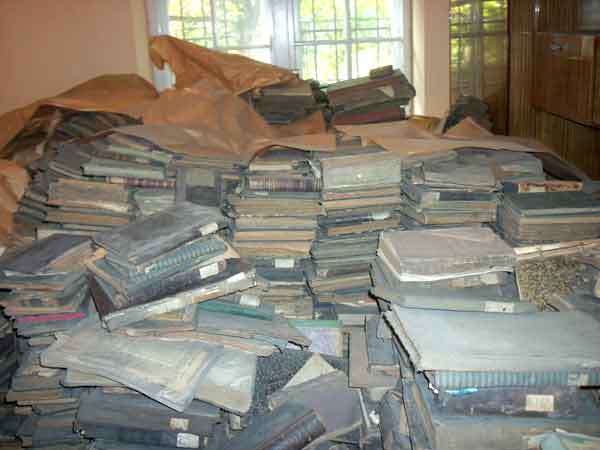ABOUT
Herzog Institute for the Study of Hasidism
The late Hasidic period (the end of the 19th century and beginning of the 20th century) was perceived and presented in research as an institutionalized and fixated movement that lost the initial Hasidic renaissance and had even degenerated. In recent research we see change and are introduced to more complex methods and approaches that are finding unique characteristics in late Hasidism. With that being said, most of these new studies focused on the mid-nineteenth century because, ironically, there are less significant Hasidic materials that are available from the late 19th and early 20th centuries until the Holocaust. The Herzog Institute for the Study of Hasidism was established to fill this gap.


In 1952 Abraham Joshua Heschel (1907-1972) published a Yiddish article in a YIVO in which he presented a number of Hasidic manuscripts that he had collected for the purpose of founding an archive for Hasidic history. This article has rarely been cited and was nearly forgotten over time. After Heschel’s death the archive was declared lost or an archive that never existed. However, Heschel did succeed in collected thousands of items from the nineteenth and twentieth centuries: original manuscripts, copies of missives and Hasidic speeches. In addition, Heschel collected thousands of testimonies and Hasidic stories, in Yiddish and in Hebrew, that were told and recorded by Hasidic Jews directly following the Holocaust. This archive was bought in 2012 by the Rubenstein library in Duke University in North Carolina, USA. Heschel’s archive provides an opportunity and allows us a rare peek into a hidden period, and for the first time shows an extensive base of maunscripts and testimonies of various kinds.
In addition, the Herzog Institute for the Study of Hasidism collects, copies and researches additional materials that are related to late Hasidism- from private archives; state archives and from libraries in Israel, Europe and around the world. The goal of this project is to learn from the many manuscripts (missives, stories, speeches and more) and to draw an interdisciplinary religious-cultural-literary-historical outline of late Hasidism. The institute also researches sources that were written in Yiddish and studies the languages contribution to understanding the Hasidic culture, something that has not yet been done in a thorough and comprehensive manner. We believe that we have a significant breakthrough for the historical, cultural, literary and philosophical research of late Hasidism.


